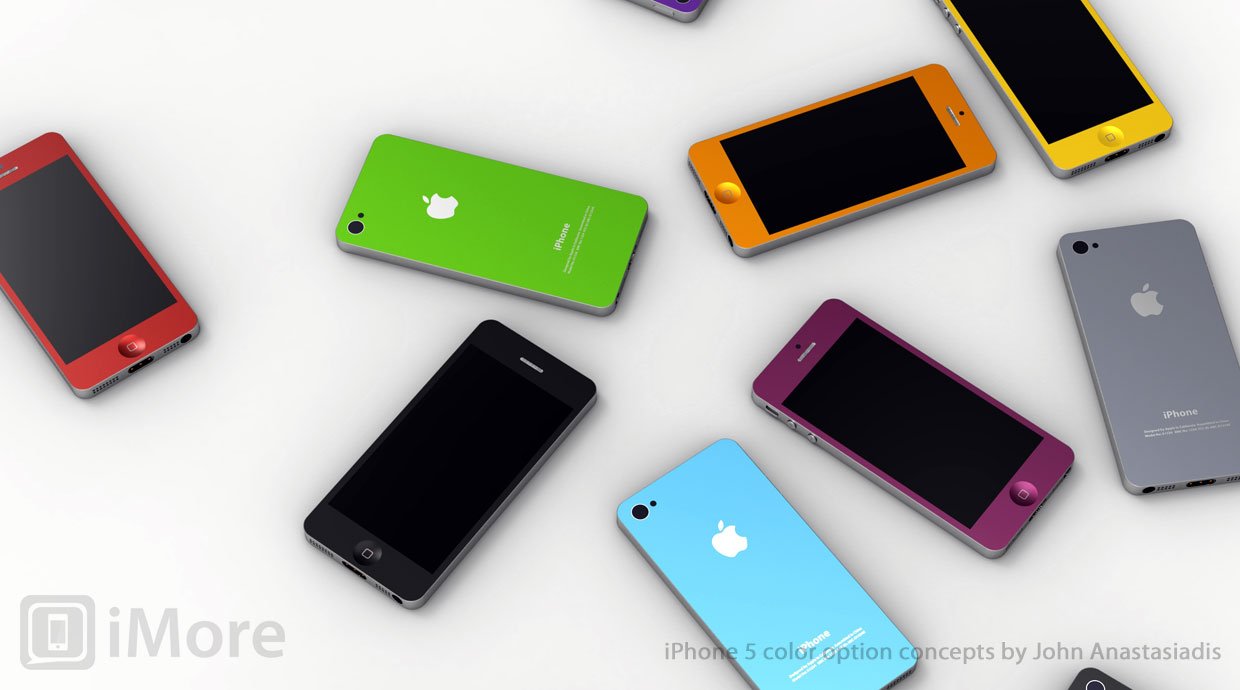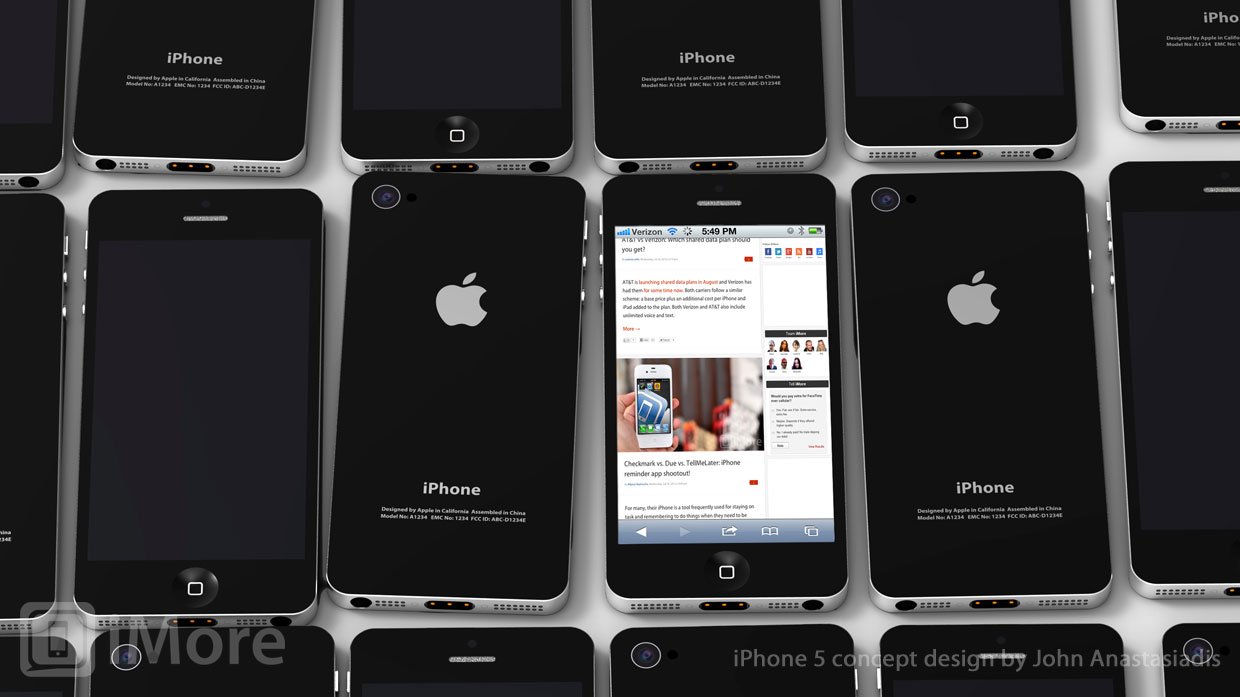The less expensive iPhone

Rumors of a less expensive iPhone, in one form or another, certainly aren't new. Rumors follow want. We want iPhones. The less expensive iPhones are the more of them we can have, and the more often we can have them. We know that. Analysts know that. And Apple knows it too.
In 2007, the original iPhone was mass-market prohibitively, Ballmer-laugh-inducing-ly expensive. So, Apple and Steve Jobs adjusted the price down. In 2008, Apple changed course, worked out a subsidized model for the iPhone 3G, and the cost of entry became only $199.
In 2009, when Apple introduced the the iPhone 3GS, they kept a lower-capacity version of the iPhone 3G around, and the cost of entry became $99. In 2010, when Apple introduced the iPhone 4, the iPhone 3GS went to $99. And in 2011, when Apple introduced the iPhone 4S, the iPhone 4 became the $99 iPhone, and the iPhone 3GS dropped the on-contract cost of entry to $0. With the 2012 introduction of the iPhone 5, the iPhone 4 has become the $0 iPhone.
It's not difficult to imagine a second line of thinking at Apple, however, where they also tossed around the idea of a secondary line of iPhones. One where older models weren't dropped in price, but new models were designed to be less expensive from the start. But if that was ever the case, if Apple ever had such a device in the planning stages, be it since 2010 or even earlier, they haven't chosen to go that way, or to introduce more than one new iPhone model a year. At least not yet...
Never say never

Something I've learned over the years, sometimes embarrassingly, is to never say never when it comes to Apple.
Apple would never switch to Intel. Apple would never put video on an iPod. Apple would never use the name iPhone 5. Apple would never release an iPad mini. Apple would never change the iPhone's aspect ratio. Apple would never release two iPads in a year. But Steve Jobs said... But Tim Cook said... But Phil Schiller said...
Never is a hyperbolically long time, and no one outside a fictional universe can see to the end of it.
iMore offers spot-on advice and guidance from our team of experts, with decades of Apple device experience to lean on. Learn more with iMore!
Whether or not Apple is likely to do something, however, for what reasons, and under what market conditions, are much tougher but ultimately more important questions to consider.
Less expensive vs. cheap

The easiest way to lower costs is to make something cheap. Cheap components, cheaply assembled, cheaply packaged, with cheap software and services, and cheap support, sold at razor-thin margins, results in a really cheap price tag. Nothing exemplifies this better than the netbooks of the last decade. Sold at unprecedentedly low price points, they ultimate pleased almost no one, not the customers who bought and suffered through trying to use them, nor the manufacturers who saw their profitability vanish and their market get trashed. They pleased no one but the people for whom price is the only important feature, the kind of customers with no brand loyalty, who break companies and entire industries, if those companies and industries are foolish enough to cater to them.
The harder way to lower costs is to make something transformative. Instead of a netbook, Apple released the MacBook Air, ultimately providing greater value at a consistent price point, rather than less value at a lower price point. Apple also released the iPad, which ditched the keyboard and trackpad but added multitouch to the mix, kept production values high, and still started at half the price of the lowest end MacBook.
With the iPod shuffle and the Mac mini, Apple removed the screen but kept their amazingly high manufacturing standards in place. Both are great products, just not expensive ones relative to the rest of the line. The second Apple TV was much less expensive than the first because it was smaller, used iOS rather than Mac components, and was built to stream rather than store huge amounts of content. The current line of MacBook Airs brought MacBook Pro quality components to a lower price point at the cost of performance and ports. Even with the iPod mini/nano and the iPad mini, Apple introduced slightly lower priced versions of popular products by reducing size rather than build quality.
Apple may not know how to (i.e. be willing to) make cheap products, but over the last decade they've proven they can continuously introduce less expensive ones when and as they choose.
Less expensive vs. subsidized

While Apple has released lower-cost versions of the iPod, iPad, Apple TV, and Mac, they've never released a lower-cost version of the iPhone. Apple has dropped the price of the original iPhone, and they've arranged for carriers to subsidize the vast majority of the cost of every iPhone that's followed. The original iPhone was introduced at $499 for the 4GB model and $599 for the 8GB model. Today, a new, off-contract iPhone 5 costs $649 for 16GB, $749 for 32GB, and $849 for 64GB.
Even the $100 iPhone 4S is still $549 for 16GB, and the $0 iPhone 4 is still $450 for 8GB.
Apple's current strategy of keeping previous generation iPhones around at lower, subsidized price points absolutely creates the perception of a cheap iPhone on-contract and in established markets. But it does little or nothing to address a lower cost, off-contract iPhone, especially in emerging markets, the ones dominated by cheap Android phones, outdated BlackBerries, and the remnants of Symbian — the ones responsible for some part, even a large part, of those platforms' market shares.
Apple kept the iPhone 3GS on the market from when it was introduced in June of 2009 to when it was put to rest in September 2012. That worked out to one year starting at $299 on contract, $650 off-contract, a second year at $99 and $550 respectively, and a third and final year at $0 and $450. Just before it went end-of-life, and just before the iPhone 5 was announced, there were rumors that the iPhone 3GS might be kept around for yet another year — it was binary compatible with iOS 6, after all, even if nowhere near feature-complete. Since there was no way Apple could further drop the price without paying people to take it — -$100 if you sign up now! — speculation was Apple could instead drop the off-contract price further, perhaps to $350, and make a run at Android and BlackBerry in those emerging markets.
Apple, however, has two core beliefs that make that strategy unlikely:
- Apple believes in offering delightful products
- Apple believes in turning a healthy profit while they do so.
To sell an iPhone 3GS into 2013, as hardware limited as it is, and at a price point where even mind-boggling economies of scale wouldn't allow for Apple level margins, was likely a non-starter.
So the iPhone 3GS was put out to pasture, and the idea of a less expensive iPhone for emerging markets was, at least temporarily, put out the pasture with it.
Never say never, again

So, if we assume a less expensive iPhone wouldn't be old and outdated, or sold at low-or-no margins, then that only leaves a new product sold at acceptable margins. If Apple doesn't follow the BlackBerry or Android strategy, which isn't in their DNA, then they're left to follow the Apple strategy.
Dropping the screen from a less expensive iPhone, the way Apple dropped it from the iPod shuffle and Mac mini could work for a phone-only device, but that would remove the immense platform value — and lock-in — of the App Store, and that seems unlikely.
Reducing something else, the way Apple reduced the size of the iPod mini/nano, or the screen resolution of the iPad mini, seems more likely. An iPhone 3GS but not, perhaps with a non-Retina but still 4-inch display, perhaps offered in colored plastic or even iPod touch-style colored aluminum, without the latest processor, perhaps without LTE, at least initially, or lots of RAM or storage capacity, absent every bell and whistle but keeping every iota of build quality, rounding out the last of the Lightning Connector line, could be a candidate.
Bottom line
It's not a matter of saying Apple would never do something. Times change. Markets change. Companies change. Plans change. And change again.
If Apple decides they don't particularly care about emerging markets right now, then if history is any indicator, we can still look forward to a $0 iPhone 4S on-contract, $450 off-contract, whenever the next update cycle rolls around. If, however, Apple does decide to put their foot on the gas and head straight towards a less expensive off-contract iPhone, then history also shows they're plenty smart enough to do it.

Rene Ritchie is one of the most respected Apple analysts in the business, reaching a combined audience of over 40 million readers a month. His YouTube channel, Vector, has over 90 thousand subscribers and 14 million views and his podcasts, including Debug, have been downloaded over 20 million times. He also regularly co-hosts MacBreak Weekly for the TWiT network and co-hosted CES Live! and Talk Mobile. Based in Montreal, Rene is a former director of product marketing, web developer, and graphic designer. He's authored several books and appeared on numerous television and radio segments to discuss Apple and the technology industry. When not working, he likes to cook, grapple, and spend time with his friends and family.
